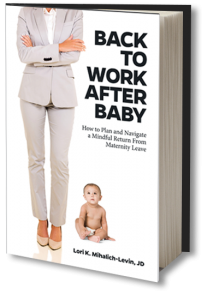 I used to walk by our kitchen sink like a dragon, fuming and ready to attack. Smoke puffed out my ears, fire sizzled from my tongue. My hands were ready to claw at the mountainous piles of dirty dishes.
I used to walk by our kitchen sink like a dragon, fuming and ready to attack. Smoke puffed out my ears, fire sizzled from my tongue. My hands were ready to claw at the mountainous piles of dirty dishes.
Now, I smile as I walk through the kitchen. An unwitting giggle sometimes escapes my lips. Yes, even when the same pile of dishes sits there, unscrubbed.
What happened, you ask? Simply put: I had a reckoning with resentment.
Resentment is a Signal
A few months ago, in preparation for a presentation I was planning to give to a group of working parents about boundary setting, I read Nedra Glover Tawwab’s excellent book, Set Boundaries, Find Peace: A Guide to Reclaiming Yourself. One thing about the book that surprised me was that again, and again, Tawwab links boundary issues to a feeling of “resentment”. According to the book’s Index, the word appears on no fewer than 13 pages, including “as sign boundaries are needed, 6-7” and “See also complaining.”
Huh. If there was one area of my life in which I was feeling resentful, it was about who was washing the dishes in the kitchen sink, and when. I also admit that I was doing a fair amount of complaining about the topic. (“See also complaining.”) Yes, I was grumbling directly to my husband, whose willingness to walk away from the kitchen sink after washing only 75% of the dishes left me fuming. One night I broke down in tears, trying to explain to him how upset I was about this issue. (That particular night, he didn’t understand my deep emotional reaction to this seemingly mundane topic.) But I was also complaining about it to my friends. “Why are we fighting over something as stupid as dishes?!” I lamented to them one evening.
Before reading Tawwab’s book, I had analyzed the situation a million different ways. Was my frustration rooted in my past? In my family of origin, my mother did all the housework. My father walked around slamming his fists and expecting to be waited on. I never wanted my kids to grow up in a world like that. But that isn’t how we live. My husband and I are equal partners. In general, we model for our sons an equitable distribution of household tasks.
Or was I perhaps simply not seeing all the work my husband was doing? I’ve read enough research on the distribution of household labor (heck, I’m a Certified Fair Play Facilitator), to know that we sometimes can’t see and tend to undervalue the work our partners do. Maybe Jason was doing more dishes than I gave him credit for? Or were my standards too high? Was it my own personal problem that I couldn’t stand seeing 3 dirty items left in a kitchen sink after the other 37 dishes had been cleaned?

Getting to a Peaceful Kitchen Sink
Recognizing that I was feeling resentful, no matter the reason, and sensing that my resentment had something to do with boundaries, allowed me to connect some important dots. If I needed a boundary, and if boundaries are all about being clear, then perhaps what was really missing here was clarity. Did we know who was supposed to be washing which dishes and when? Nope. Sometimes I’d see the dishes sitting there and simply clean them. And other times, Jason would spontaneously start in on the task.
I went back to my husband, this time, not in tears. (Reminder: as Eve Rodsky likes to say in Fair Play, “when emotion is high, cognition is low.” It turns out the inverse is also true.) I explained that it was confusion that was causing me to be upset about the dishes in the kitchen sink. That it wasn’t him, I was resentful of. Just the fact that we never spelled out who was supposed to do which dishes and when.
We had a long conversation about our evening routine, and how things had evolved over the years. As our children got older, I’d taken on more of the daily homework helping, which led to his taking over more of the dishes, even on nights when he did the cooking. In short, the ways in which we were each needed within the family had changed as our kids grew and schedules changed. But our allocation of labor hadn’t changed with those changing schedules.
That night, we hatched a plan to simply take turns washing dishes. One day at a time. I wash all the dishes today. He washes all the dishes tomorrow. Nothing confusing. Annoying on some days, and remarkable on others.
After a few days of peaceful dish washing baton passing, I woke up in the morning enraged to find dishes in the sink that should have been washed by my husband the night before. My initial reaction? “5 alarm fire!!” After my rational brain came back online, I realized a flaw in our original plan. We hadn’t explicitly set a “minimum standard of care” (or MSC) as Eve Rodsky calls it in Fair Play. Right. We didn’t talk about what the expectation of “clean dishes” meant. Not precisely.
So we returned to the conversation. This time, we got clear on specific expectations. The MSC we agreed to was that if it’s your day to wash the dishes, you need to wash them all (and wipe the kitchen sink, too!) by the time you go to bed. If that’s simply not possible – a situation we agreed would be rare – then the dishes that are in the sink are yours to wash when you wake up.
Whew. I could breathe a sigh of relief at the clarity.
Holding Boundaries Matters
We’ve been happily passing the “dirty dishes” card of our household task deck back and forth to one another for a few months now. And I don’t feel resentful anymore. Clearly, the intervention worked.
I initially struggled with one thing, though. And this one thing had nothing to do with Jason. The first few weeks, when I walked by a stack of dirty dishes and had an extra 5 minutes on my hands, I thought to myself, “I should help him out and wash a few.” Especially if it was a day I knew he had a lot going on.
Restraining myself from jumping in and just scrubbing a handful of dishes has been important. Tawwab’s words rang in my ears, that “if you don’t uphold your boundaries, others won’t either.” So I resisted the pull of the blue sponge.
More specifically, reminding myself of two things kept me from jumping in and performing a task that wasn’t mind. First, when I found myself about to go wash a dish on a day I wasn’t supposed to be washing them, I let myself remember all the other things in the house I needed or wanted to do. And I went and did one of those things instead. And second, I called to mind the research on maternal gatekeeping. If this was something I really wanted to let go of on the “off days,” then I truly had to let it go.
Today, I’m feeling grateful that I was able to listen to my own internal narrative, label the feeling I was having, and figure out what that feeling meant. I’m also grateful to my hubby for engaging in this ongoing conversation about the dance and flow of our lives. Because we are both willing to have these tough conversations, I don’t resent our dear kitchen sink anymore.
Want more practical tips on working parenthood? Check out my book, Back to Work After Baby: How to Plan and Navigate a Mindful Return from Maternity Leave


